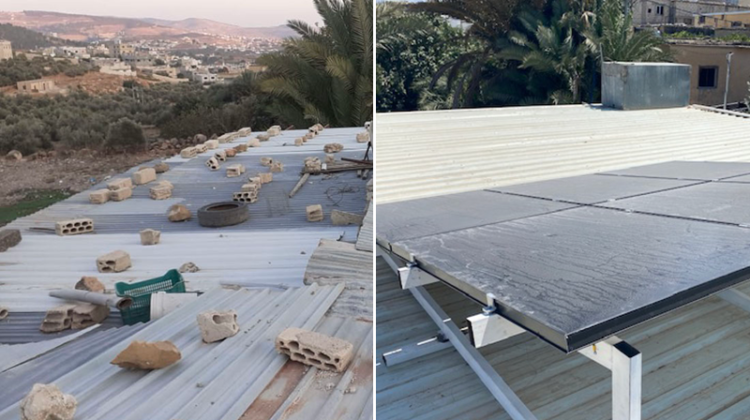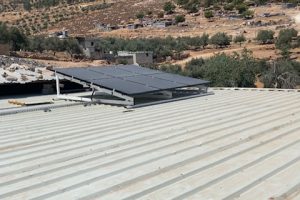
A team of UCLA students and recent graduates has harnessed the power of the sun to bring safe, low-cost housing to displaced Palestinianrefugees in the Jerash camp in Jordan.
Founded in 2019 by UCLA Samueli School of Engineering alumnus Rashed Alkhlaifat, student organisation Design Create Solar brings together UCLA students from a wide range of academic backgrounds to design and develop solar-energy solutions for the university campus and underserved communities around the world. The group’s student leaders have spent the past two years working with Jerash Refugee Camp, which was set up during the 1960s to house displaced Palestinian refugees, to create energy and infrastructure solutions that will improve the quality of life of the camp’s residents.
Alkhlaifat, who now acts as an advisor for the club, is originally from Jordan and he has visited the camp frequently since 2019 to gain a better understanding of the struggles faced by its inhabitants. ‘What inspired me to take on this project is the fact that an overwhelming portion of the world’s population is unable to satisfy basic human needs such as food, water, energy and shelter,’ he said. ‘Growing up in the Middle East, I witnessed this first-hand as a lot of people in my community only had access to water on certain days of the week and would go months on end without electricity.’

In the camp, Alkhlaifat saw outdated, poorly built homes made using carcinogenic materials, many of which were at risk of collapse. Most of the refugees also live under the threat of eviction or jail time because they can’t afford to pay their electricity or other utility bills.
While studying for his undergraduate degree in material engineering, Alkhlaifat focused on developing and applying green technology to address climate change. In the process, he discovered a way to improve a building’s sustainability and structural integrity by outfitting it with a thermally insulated solar roof.
Design Create Solar’s project in the refugee camp involved building the roof insulation structure and installing six photovoltaic panels, which were donated by the project sponsor, SunPower. The panels should provide two kilowatt-hours of electricity per day – enough to more than cover basic power consumption for a home, including refrigeration, washing machines and water heaters.Significantly, the panels will eliminate residents’ electricity bills, which usually account for 15–20 per cent of household income.
The club’s next goal is to expand the number of builds while researching both the efficacy of the solar roofs the ways in which they can improve the camp residents’ standards of living.



